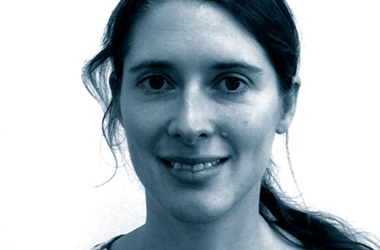Will children born today have the highest rates of obesity the UK has ever seen?
I’m no public health expert, but it seems obvious that the most effective approach to tackling this health crisis would be to start with children. My understanding is that once fat cells are laid down, their numbers remain constant throughout life. Friends and family who have struggled with weight issues from childhood, have almost invariably had a lifelong problem.
Rather than instructing GPs to refer patients to patchy weight management services, and adding another dubious QOF indicator, public health services would be better off looking at educating new parents.
As a mother of three, I’m well-versed in the eating habits of babies and young children. ‘More, Mummy, more!’, is a frequent refrain in my household. I take the approach that sometimes (*read, fairly often*), they do not need more. Take my middle child. She is a four-year-old with an absolutely ferocious appetite. She is not overweight right now, but I have no doubt if she were to determine her portion sizes, she soon would be.
Sending her to preschool, I always endeavour to pack a suitably healthy packed lunch. Nevertheless, I’m frequently advised that I don’t pack enough. She needs three snacks as well as a sandwich – apparently. If I don’t pack at least this much, she tells the staff she is hungry, and is given cheesy biscuits. This child has a larger packed lunch than I do.
Another observation I have is of the deeply-held belief that it’s not possible to give a baby or toddler too much healthy food. My sister – a science graduate who prides herself on being well-informed about all matters of child-rearing – has confidently informed me several times of this fact. Consequently, she provides her very young daughter with what appears to me to be an absolute mountain of ‘healthy’ food. There are pitta breads, cheese chunks, cucumber, carrot sticks, hummus and yoghurt dip coming out of this child’s ears.
I’ve heard my sister’s statement repeated multiple times from various well-educated sources. Can it have any truth in it? Surely, as a species, we have not evolved to be provided with unlimited nourishment, regardless of our activity levels? Haven’t we been designed to go through spells of hunger, whilst we hunt or forage for food?
The NHS can ill afford to tiptoe around these issues: when the burden of increased health costs affects the whole system
Finally, there is the tendency for modern parents to have ‘snacks’ on them at all times. If you go to a play centre, park or zoo, you’ll see parents handing out little bags of breadsticks or crisps, Tupperware pots filled with fruit or raisins. These are not mealtimes. The parents themselves will claim: ‘He gets so hungry, if he doesn’t get his snack, he has the most almighty meltdowns’. This may be true, but it’s also true that in the UK one in three children will leave primary school overweight or obese. These children are being given too much food; there is no escaping this fact.
So, how do we begin to unpick this culture of overeating in our schools and childcare settings, not to mention family homes?
My approach would be to educate parents early – as early as prenatal classes – around baby food and portion sizes. Repeat the lessons frequently, and educate nursery, pre-school, and primary school staff. Show parents and carers images of a healthy-sized child at different ages. Many healthy children would appear very slim to modern eyes, with visible ribs and skinny legs.
It would be helpful to show images of an overweight baby, how they progress to be an overweight child, and then an overweight adult, with all the associated health complications. Our society’s visual understanding of a ‘normal’ or ‘healthy’ weight has been hugely distorted by exposure to a generation of over-fed children.
Public health interventions need to identify those children at risk of becoming overweight or obese, offering support early. Parents need to be given clear and uncompromising guidance on how to make healthier choices, and the serious consequences of not changing their behaviours. This is not about stigmatising these families. These children may suffer a lifetime of increased disability, reduced life opportunities, and many will die decades earlier than they would have otherwise. The NHS can ill afford to tiptoe around these issues: when so many will suffer so considerably, and the burden of increased health costs affects the whole system.
We are an obese nation, who eat too much, and move too little. Our health authorities seem too concerned about causing potential offence, to give unambiguous advice to parents and carers who are overfeeding their children. Hencewith, I have no confidence that the UK’s obesity crisis will have improved in twenty years’ time.
In the meantime, my sister continues to load her daughter’s plate with food. Perhaps I should feed back on the outcome here in 2038? However, by then it be too late, for yet another generation.
Dr Katie Musgrave is a GP trainee in Plymouth and quality improvement fellow for the South West

















